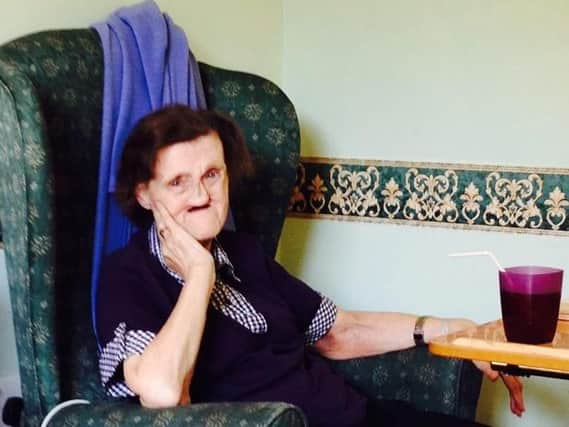Leeds pensioner died after massive Vitamin D overdose, inquest told


Wakefield Coroner's Court heard the increased dose over a number of months led to 86-year-old Eileen Cowles suffering a condition called hypercalcimia, where there is too much Vitamin D in the blood.
A former Home Office pathologist, who carried out a post mortem on Mrs Cowles after her death, said she had suffered intestinal bleeding following a haemorrage that was "more likely than not" related to the hypercalcimia.The pensioner's family only discovered the fatal mistake after finding papers while clearing out her room at the care home she lived at following her death on April 17, 2015.
Advertisement
Hide AdAdvertisement
Hide AdThe inquest heard the GP practice in Guiseley , Leeds, was twice asked if the prescription was correct and said on both occasions that it was.
Mrs Cowles had a history of vascular dementia and had previously undergone extensive facial surgery to remove a tumour after suffering from cancer in 1996.
The inquest heard in 2014 Mrs Cowles suffered a fall at home, broke her hip and underwent surgery at Leeds General Infirmary.
She was prescribed two Vitamin D tablets per month before leaving hospital in a bid to strengthen her bones and prevent further fractures.
Advertisement
Hide AdAdvertisement
Hide AdThe inquest heard Mrs Cowles had to move into residential care and in October 2014 was being looked after at Primrose Court care home in Guiseley.
She also changed doctors and her new GP surgery was the Park Road Medical Centre at Guiseley.
Primrose Court care home manager Sharon Buckland wrote in a statement that records showed on November 17 2014 that Park Row Medical Centre had issued a prescription for
two colecalciferol (Vitamin D) tablets for Mrs Cowles but had not stated the frequency when they should be taken.
Advertisement
Hide AdAdvertisement
Hide AdMs Buckland wrote in the statement that care home staff had queried with the GP surgery and were told two per day.
Care home team leader Karen Hodson wrote in a statement that she queried the fact that Mrs Cowles had been given a prescripion of 56 tablets and was told that was correct.
The inqest heard the prescription was issued by the Park Row Medical Centre in November 2014 and was repetated every month with the taken two capsules daily instruction up to and including February 2015.
Mrs Cowle's condition began to deteriorate and she was sent to Bradford Royal Infirmary in March 2015 with a suspected stroke but was discharged after it was found she had a water infection.
Advertisement
Hide AdAdvertisement
Hide AdShe was transferred to Leeds St James Hospital in March 2015 where it was noted she had raised calcium levels.
Two days before her death, her family, who were given power of attorney, declined a blood transfusion.
GP Ibrahim Syed of Park Road Medical Centre at Guiseley said the dosage was a "mistake" and he would have scrutinised the repeat prescription in more detail if he wasn't pressed for time.
He said: "I think ultimately I had not spotted the fact the prescription was erroneous. Regretfully I had not picked up on the fact this was not a maintenance dose.
Advertisement
Hide AdAdvertisement
Hide Ad"I think it's human error, it's a case of having to scan a large number of prescriptions everyday compounded by trust I put in my colleagues.
"I think when you are less pressed for time it might be I would have been able to spot the erroneous dose. It was almost like a needle in a haystack.
"Regardless of whether you are busy or not, I put a lot of faith in my colleagues when they are setting up repeat prescriptions and it was further exacerbated by the workload at the time."
Area coroner Jonathan Leach read a statement made by a Mrs Cowle's daughtyer Christine Bull.
Advertisement
Hide AdAdvertisement
Hide AdMrs Bull said in the statement: "Mum was very strong and a fiercely independent lady. After her fall we never thought she would be able to walk again."
Former Home Office pathologist Dr Richard Shepherd said he had not encountered hypercalcimia as a cause of death in this way in is 35-year career.
Dr Shepherd said he could not rule out that the intestinal bleeding was spontaneous, but added: "I think it's much more likely than not that it was due to the hypercalcimia or a side effect."
Dr Shepherd said he coud not find any reason for a natural death.
Proceeding